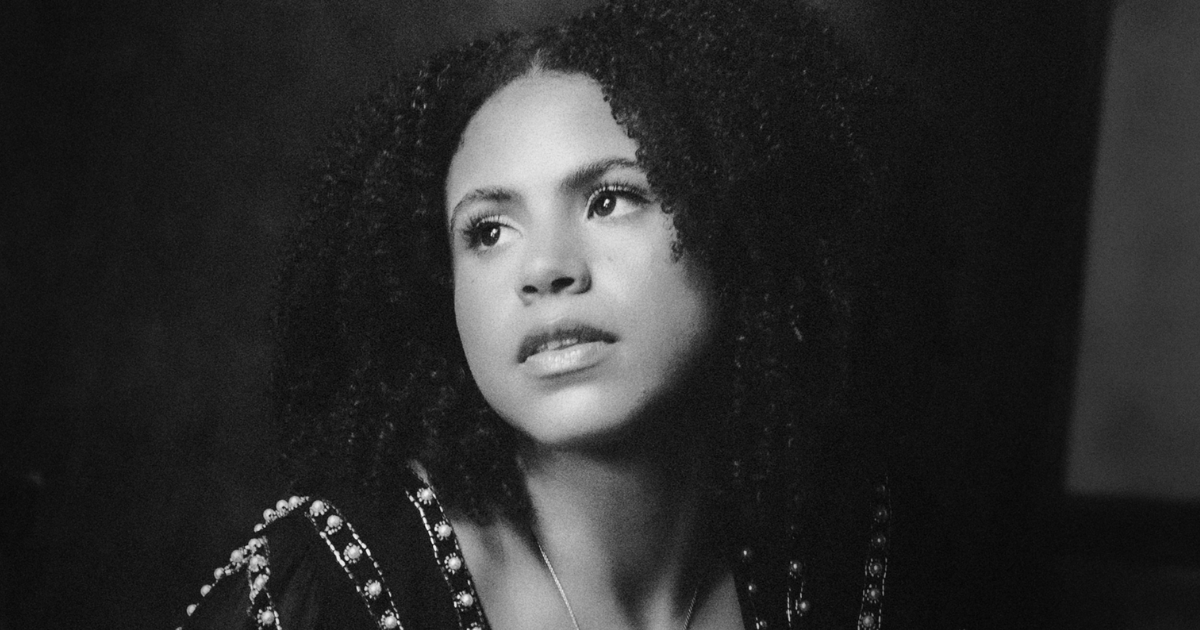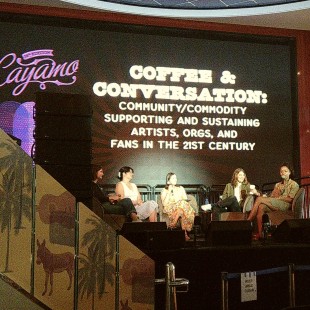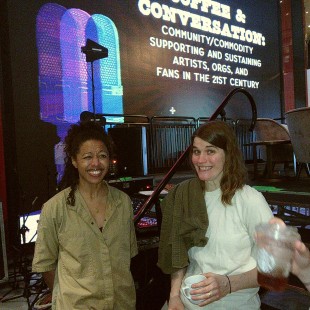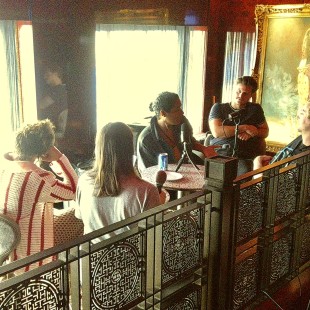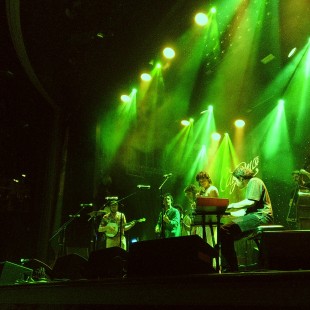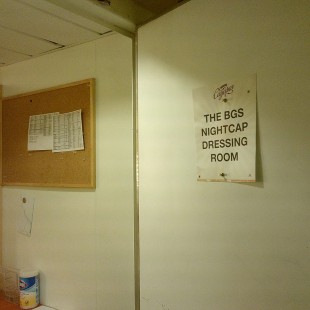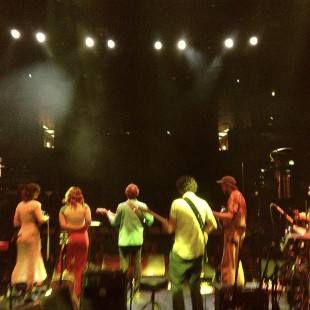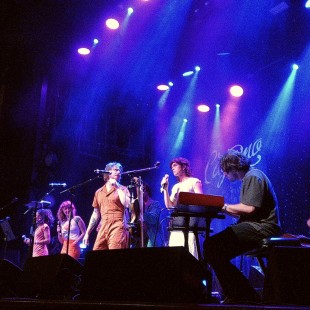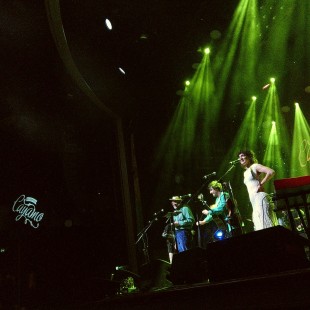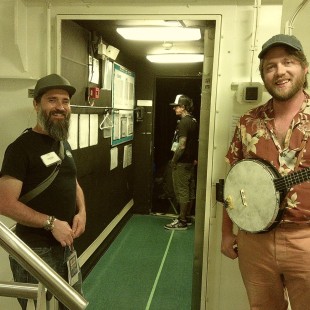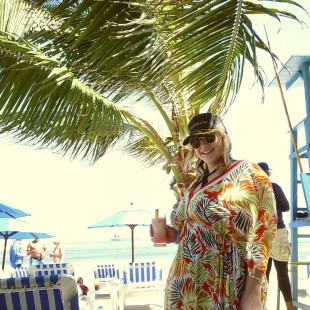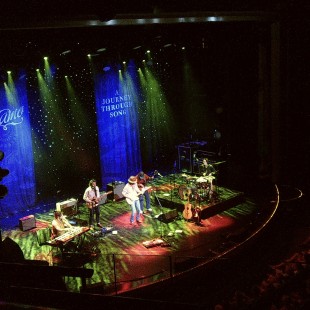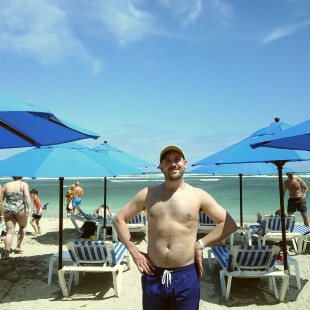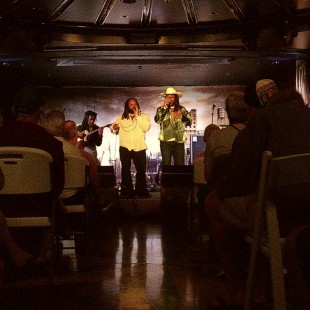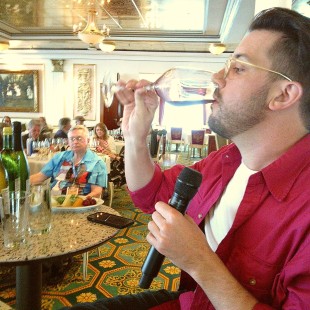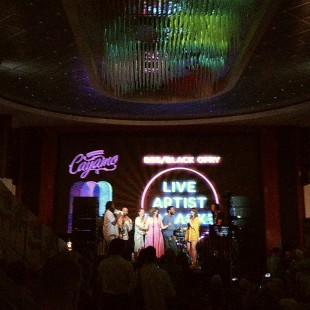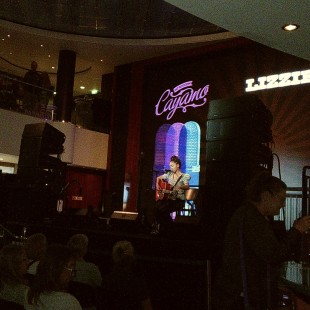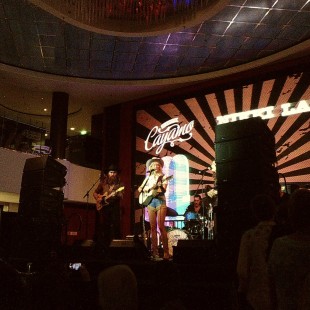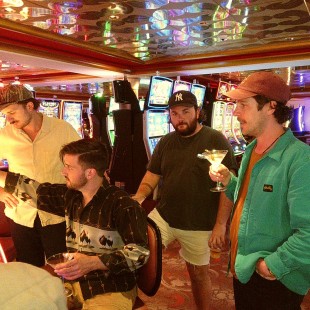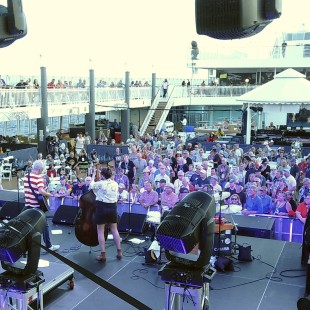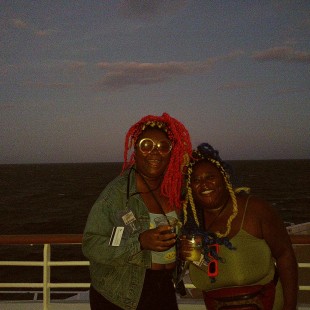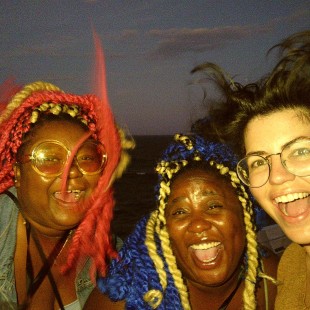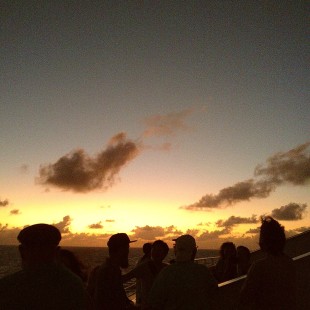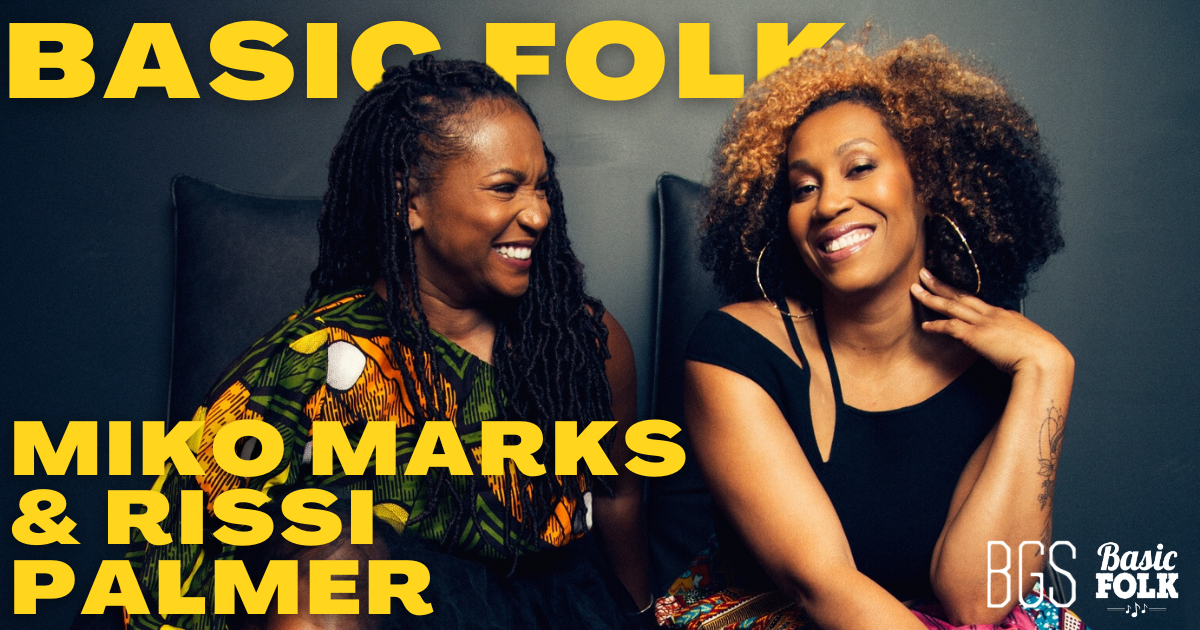“I like to say my music is mixed, like me,” laughs Julie Williams, a queer, biracial Nashville-based songwriter who happens to be one of the strongest new voices to emerge in country music this decade. “I grew up loving ‘90s country, but before I moved to Nashville I didn’t necessarily think I could make that music. I didn’t think I had a place in the genre. I had so many other influences too – like the Indigo Girls, James Taylor, and other folk music – so I thought that would be more my world. But the song that changed everything for me was ‘Southern Curls.’ I was like, whoa, this is undeniably a country song, and it feels more like me than anything else I’ve ever written.”
Released back in 2021, “Southern Curls” was a breakout single for Williams and continues to inform her subsequent work in a lot of ways. Like many of the best country songs, the track flirts with an existing trope while flipping it entirely on its head, invoking the texture of her own Black hair as a foil to disrupt the traditional image of coiffed ringlets favored by white southern belles. Williams uses her hair as a gateway to discuss the still prevalent differences between how Black and white women are treated in this country, particularly in the South, and opens the conversation with a matter-of-fact account of her personal experience.
It’s a simple, riveting song, intimate and singular, but also broad enough to provide desperately needed representation for a whole diaspora of Black female artists who, like Williams, have had a hard time making space for themselves in the predominantly whitewashed genre of mainstream country. Almost immediately, the track earned the attention of fellow Black country artist and Apple Music host Rissi Palmer, who named Williams to her 2021 Color Me Country cohort, and also caught the ear of the Black Opry, who invited the young artist to join the collective on stage and on tour in 2022.
Following this up with a self-titled EP in 2023, an appearance on a PBS special about Black women in country, and a performance at Newport Folk Festival, Williams joined the CMT Next Women of Country Class of 2023. Now, she’s touring behind another new EP, Tennessee Moon, which includes a new version of the impactful song. Williams is excited about the prospect of expanding her sound – and her writing voice – even further.
“‘Southern Curls’ gave me the bravery to write songs that feel authentic to me,” Williams says. “From there, I’ve been really lucky to work with some incredible people, like my partner Jonathan Smalt, who produced my new EP, Tennessee Moon. This is a big release for me in that it feels like an arrival.”
Another part of that feeling? Williams and “Southern Curls” were featured prominently as part of a new documentary on Hulu, It’s All Country, which features legends like Luke Combs, Wynonna Judd, and Sheryl Crow, plus a never-before-seen performances from Williams herself.
While out on tour behind Tennessee Moon, which released in October, Williams called in to speak with Good Country from the road. She talked about her experience shifting from the world of public policy to the music industry, all things ’90s country, navigating the bounds of folk and other genres in her sound, and those deeply felt, close friendships that might have always been more than… just friends.
What was your relationship to country music like when you were growing up?
Julie Williams: My mom used to play a lot of ‘90s country in the car, artists like The Chicks, Shania Twain, Trisha Yearwood, and Sara Evans – but especially The Chicks. I’ve been thinking a lot about them recently, especially in the last few weeks [since the presidential election]. A huge part of my musical introduction was around the time when The Chicks were kicked off country radio. Their song, “Not Ready To Make Nice,” I remember my mom explaining the lyrics to me. That was really where my love for storytelling and lyrics came from.
I noticed the lyrics in your songs right away, they’re not filler or frivolous, they’re stories.
I always thought people would only want to listen to me if I was playing the songs they already knew and loved. Once I started writing, I realized my stories have value. Growing up in Florida, I’d sing covers of Jimmy Buffett and Tom Petty, whatever songs I thought would get me the tips from the snowbirds. I didn’t go to school for music, I went to Duke University and studied public policy. I wanted to work for a non-profit and become a lawyer. But we had a student record label I was a part of, Small Town Records, and that was the first time I got the chance to start writing my own songs. I started to see the power in my own story.
How did you make the jump from studying public policy back into music?
I wanted the work I did to make somebody’s life just a little bit better, but I didn’t realize I could do that with music too. Some of the things I cared a lot about, too – issues of race, queer issues, and women’s issues – how do you get people to care about them? Part of it is through telling stories that move people. I soon realized I didn’t have to sit behind a desk all day and be a policy analyst. Music can also get me in spaces and in front of people that I wouldn’t be around.
Is there an artist who has a career path that you’d like to follow in the industry?
I’ve always been such a fan of Kacey Musgraves and the way that she’s always stood up for what she believes in. She’s never backed down in that, and she’s always put herself in her songs. Part of it is about love and heartbreak, but it’s also about following your arrow, and being yourself. Even the ways in which she’s created a whole new sound in country and in folk with Golden Hour. I fell in love with that album when it came out. I’ve always looked up to the way she can capture the simplest feelings of being a human in her songs.
How do you feel about your music as country or as folk? There are so many other elements to it, and you have a very layered, textured sound.
I have so many influences that aren’t from country, but pairing all of those things creates that mixed sound that really feels like me. As an artist, I’m constantly thinking about “How am I going to market this?” or “What genre is this going to be in?” and that can sometimes feel limiting. I don’t think my music would fit into a traditional pop-country radio sound, but I don’t think it fully fits into other genres either. I’m just trying to make what feels good for me.
How does Tennessee Moon fit into your current discography? It feels like another level.
It’s definitely a big release for me. That’s a testament to being here in Nashville for a few years and trying things out. Every time I put out music or write a song, I hope there’s going to be better ones that keep coming. “Tennessee Moon” was a really special one for me. It started with a film photo that I took of an ex while we were kayaking at Percy Priest lake at sunset. That relationship didn’t work out, but I took the photo to a co-write with a friend of mine, Melody Walker. I said, “I want to write a song that feels like this picture,” and I knew everything else was going to be around that song.
“Just Friends” is another one of my favorite songs on Tennessee Moon, and it seems like so many people relate to the experience of the blurred line between best friends and something more. How did it feel to address that?
I wrote this one with Melody Walker as well and it’s also one of my favorites. I love women, and I realized that I can love anyone regardless of their gender identity. I came to that realization in my twenties, but now that I know who I am – and who I love – I was looking back at a specific friendship of mine. Retrospectively, I realized I had a crush on this person. I was in love with this person. But getting the chance to create a pretty sapphic music video felt like ripping the band-aid off as far as talking about my queer identity in my songs. I hadn’t done that before. I’m really excited to write and put out music freely now.
Photo Credit: Chase Denton
